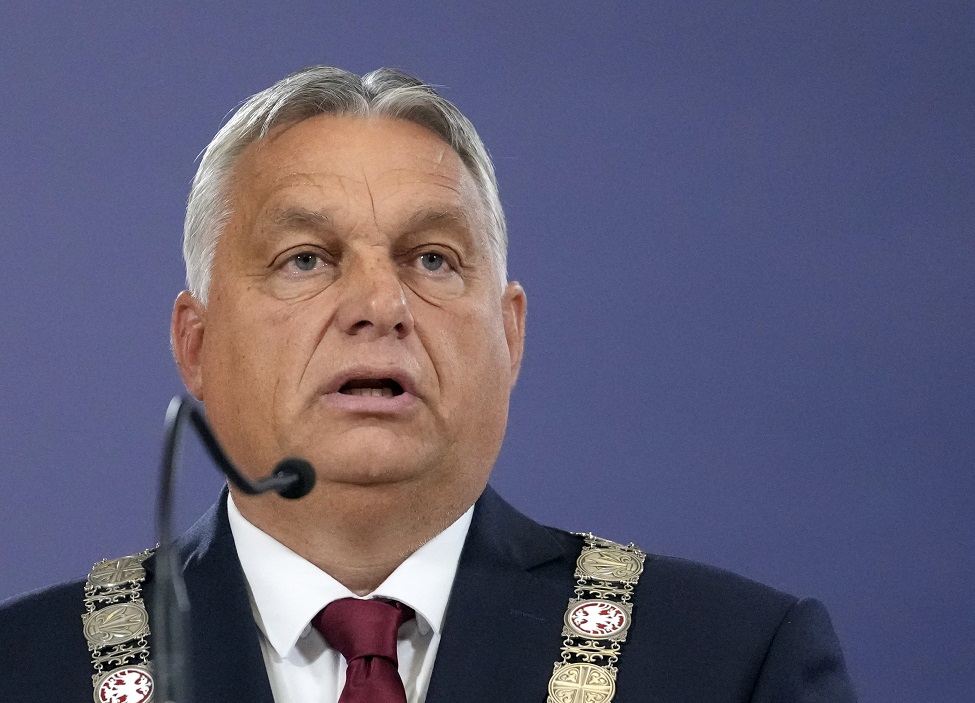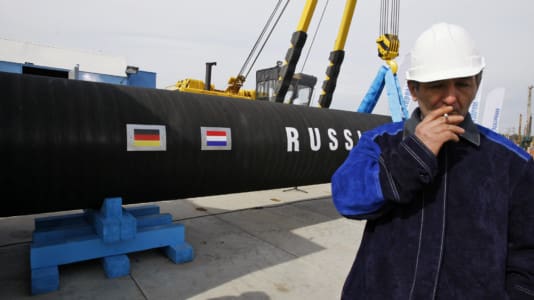Hungary is planning to launch a national consultation over the EU’s Russia sanctions, with the consultation asking citizens whether they support the sanctions or not. The Hungarian government has vocally opposed many of the sanctions imposed on Russia arguing they harm Europeans more than they hurt Russians, and Hungarian Prime Viktor Orbán just last week called for an end to Russian sanctions by the end of the year in order to halt inflation, halve food prices, and bring soaring energy costs under control.
Hungary has long put questions of vital national importance — such as border security, pro-family policy and immigration to a national consultation — to its citizenry, asking the Hungarian population how it should proceed. While the consultation is non-binding, the government views the citizens’ opinion as a guiding principle related to decisions it takes at the national level, with the consultations designed to help gauge public support for specific policies.
[pp id=46171]
The two factions that make up Hungary’s ruling coalition have also convened to discuss the most important issues affecting Hungary currently, with the Brussels-imposed anti-Russian sanctions at the top of the list, Fidesz’s parliamentary group leader Máté Kocsis told a press conference in Balatonalmádi on Monday.
“The two factions asked the government to launch a national consultation on the issue of energy sanctions. It is not right that only the Brussels elite should decide on the sanctions,” Kocsis said. “Asking people will also be important because the longer this debate drags on, the more damage it will cause,” he added.
According to the Magyar Nemzet newspaper, the leader of the Fidesz faction added that the consequential effect of the sanctions on Hungarian consumers is not what Brussels promised when it introduced the sanctions.
[pp id=49846]
Máté Kocsis emphasized that Russia has become much richer, while Europe has become poorer. He noted that Russia has earned €158 billion in revenue since their imposition, €85 billion of which has come from the pockets of EU citizens.
The Brussels sanctions are causing damage to both economies and households, Kocsis warned, adding that increased energy prices are leading to an economic downturn. In the autumn session, work must be done to ensure that there are no sanctions, said the faction leader.
The faction leader of the Christian Democratic People’s Party (KDNP), István Simicskó, indicated that the fundamental problems are due to the war and the bad response from Brussels.
“In all cases, when important issues of national destiny have to be decided, we must ask the people,” he said.
Simicskó added that Tibor Navracsics will continue working in the KDNP faction after the technical obstacles to the minister of regional development changing his parliamentary group have been removed.
“Navracsics already indicated before the inaugural session of the National Assembly that he wanted to join the faction of the KDNP. It is also important for us that the big strategic goals, such as family subsidies, do not stop. These will be expanded again from the middle of the cycle, from 2024,” said the Christian Democrat politician.
In response to a question from Magyar Nemzet, Kocsis said that he expects a lot of interest and many participants in the national consultation. Simicskó added that the consultation can set an example for other European countries as well.
The Hungarian opposition also reacted to the new national consultation initiated by Fidesz and KDNP. According to DK, it makes no sense to consult on the EU sanctions against Russia, which were all approved by Prime Minister Viktor Orbán. DK wrote that Fidesz faction leader Máté Kocsis announced that “despite the livelihood crisis and the alleged government savings,” another national consultation will be launched, this time on sanctions.






